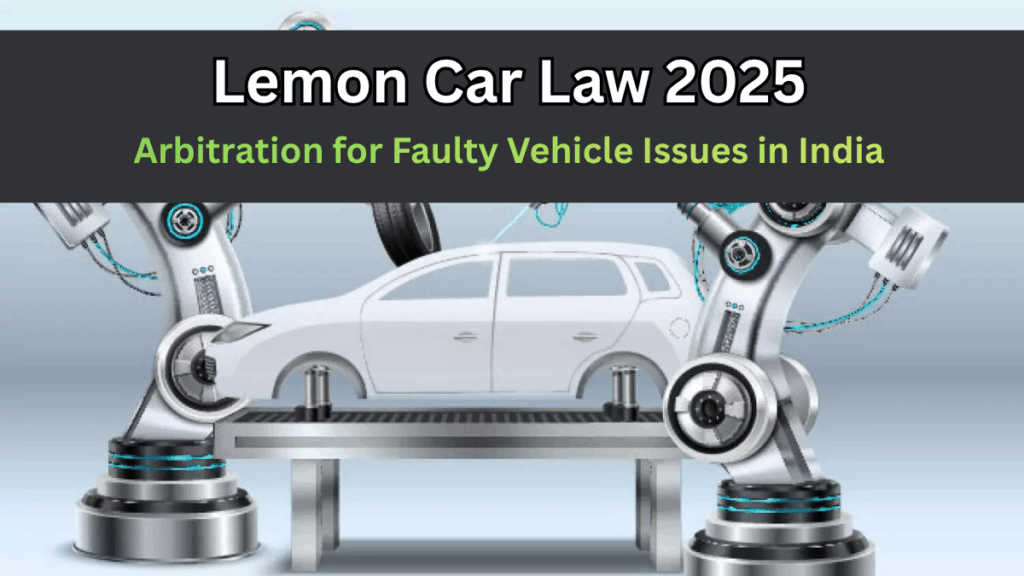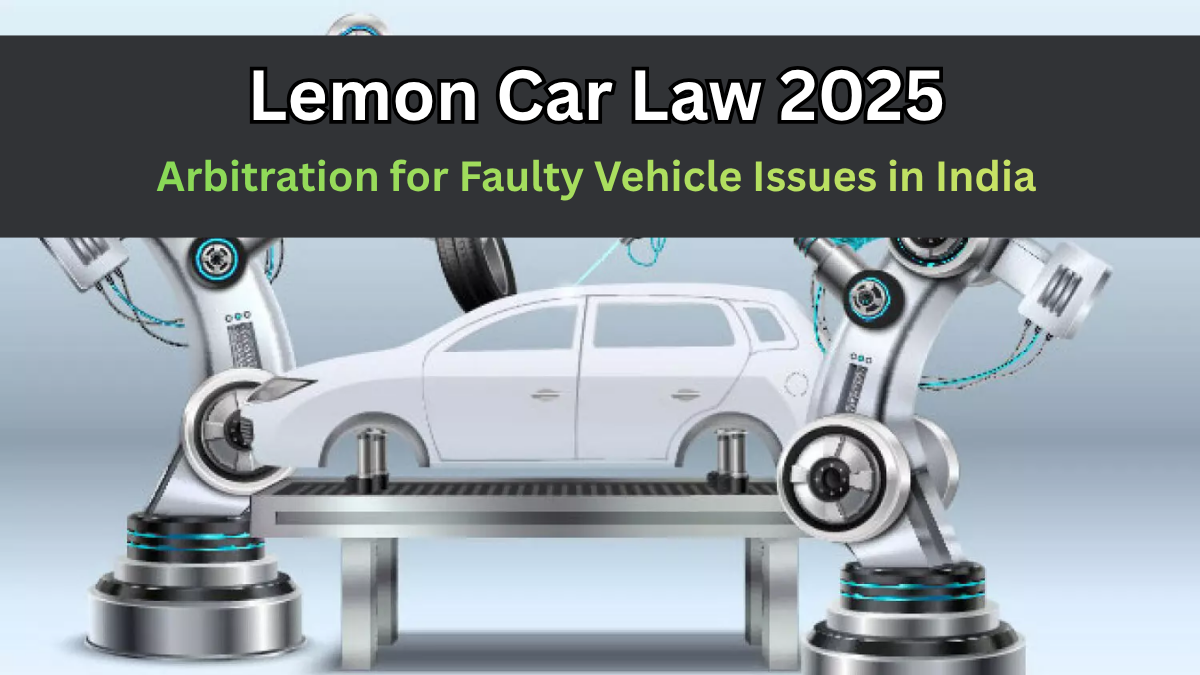The automotive landscape in India is set for a major transformation with the introduction of the Lemon Car Law India 2025. This law aims to protect car buyers from defective vehicles and streamline the process of resolving complaints through arbitration. For car owners facing persistent issues, this marks a significant step in addressing their grievances efficiently.

What is the Lemon Car Law India 2025?
The Lemon Car Law India 2025 is designed to safeguard consumers who purchase faulty or defective vehicles. Under this law:
Key Points
-
Car manufacturers are held accountable for repeated vehicle defects
-
Buyers can seek replacement or refund if their vehicle has major issues that cannot be resolved
-
The law emphasizes faster resolution through an arbitration mechanism rather than prolonged court proceedings
This is a critical development for anyone navigating a consumer auto grievance in India, providing a clear framework for accountability.
How Arbitration Works Under Lemon Car Law
Arbitration is at the core of the Lemon Car Law India 2025. Here’s how it works:
Key Features of Arbitration
-
A neutral arbitrator reviews the complaint and evidence
-
Both the consumer and the manufacturer present their case
-
The arbitrator can order repairs, replacement, or refund depending on the severity of the defect
| Step | Consumer Role | Manufacturer Role |
|---|---|---|
| Filing Complaint | Submit detailed vehicle issue report | Respond with service history and defect assessment |
| Arbitration Hearing | Present proof of repeated faults | Provide explanation and potential solutions |
| Decision | Accept arbitrator’s ruling or appeal | Comply with ruling or negotiate settlement |
This approach reduces the time and stress typically associated with consumer auto grievance resolutions.
Who Can Benefit from the Law?
The law is especially relevant for:
-
First-time car buyers dealing with recurring vehicle issues
-
Customers who have faced delays in resolving complaints through dealers or manufacturers
-
Owners of new vehicles covered under warranty but experiencing persistent defects
Benefits for Consumers
-
Quick dispute resolution without lengthy litigation
-
Legal backing to demand replacement or refund for defective vehicles
-
Encourages manufacturers to improve quality control and customer service
Impact on Automotive Companies
For car manufacturers, the Lemon Car Law India 2025 is both a challenge and an opportunity:
Key Impacts
-
Ensure robust quality checks to avoid arbitration cases
-
Prompt and effective resolution of consumer auto grievances can improve brand reputation
-
Revise warranty terms and service policies to comply with the law
| Aspect | Impact on Manufacturers | Impact on Consumers |
|---|---|---|
| Accountability | High | Protected from defective vehicles |
| Reputation | Risk if complaints are mishandled | Confidence in purchase |
| Legal Process | Arbitration simplifies disputes | Faster resolution |
Filing a Complaint: Step-by-Step
-
Document all vehicle defects with photos and service records
-
Contact the dealer or manufacturer for initial resolution
-
If unresolved, file an arbitration request under Lemon Car Law India 2025
-
Attend arbitration hearings and provide supporting evidence
-
Accept or appeal the arbitrator’s decision as per guidelines
FAQs
Q1. What types of vehicle issues fall under the Lemon Car Law India 2025?
Major mechanical failures, repeated electrical faults, safety-related defects, or issues that significantly affect vehicle performance are covered under the law.
Q2. How is arbitration different from going to court?
Arbitration is faster, less formal, and usually less expensive than court litigation, offering a structured resolution specifically for consumer auto grievance cases.
Q3. Can I get a full refund for my faulty car?
Yes, if the defect is severe and cannot be resolved after multiple attempts, the arbitrator can order a replacement or full refund.
Q4. Does the Lemon Car Law India 2025 apply to all car brands in India?
Yes, the law applies to all manufacturers selling vehicles in India, ensuring uniform consumer protection across the automotive industry.
Click here to learn more
